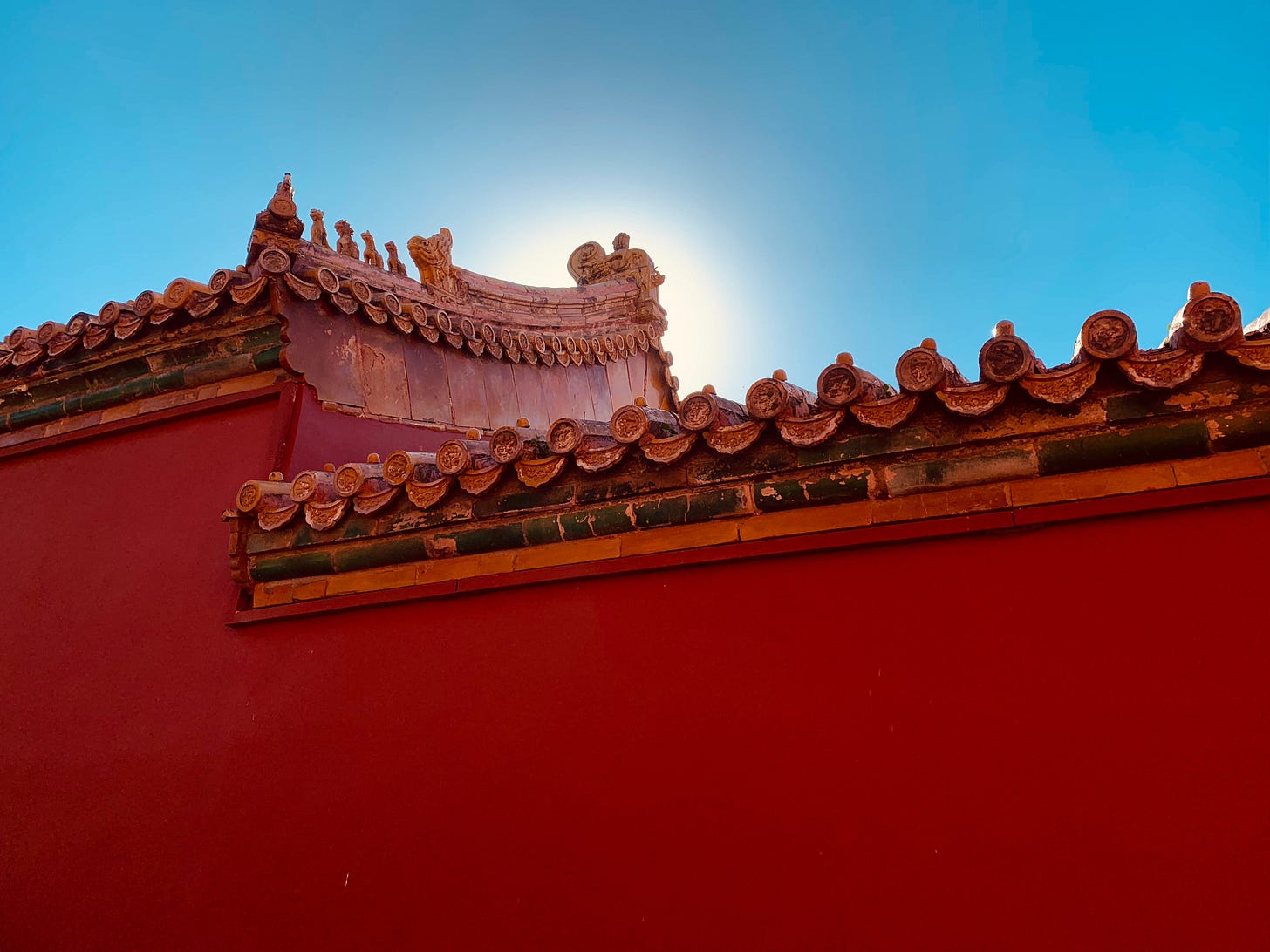Introducing Off-Field, from Alexis James
#1: Monthly tales from the fringes of sport and society. The untold and unsung...
Hello and welcome to Off-Field, a new monthly newsletter put together by me, Alexis James. Each month I’ll be linking out to written features and podcasts either produced by my fair hands or, less self-indulgently, by others whose work I not only admire but secretly wish I’d come up with myself.
Stories will mainly revolve around sport, but with an occasional flirt outside of those realms. All will be thematically tied together by the somewhat lofty tagline of “the untold and unsung”, which is basically a shorter way of saying things and people you don’t usually read about. Rather than adding to the mainstream, I’ll aim to provide a steady flowing trickle from the fringe.
Before tenuous water metaphors result in a dash for the loo, onto this month’s picks. Celebrating the return of the club football season, there’s an interview with the Premier League’s top performance chef, a look back at when China tried to become football’s new superpower (sound familiar?), and an endearing documentary on the toils of grassroots refereeing.
Further afield, there’s a look at the World Eskimo-Indian Olympics, the defiant women behind the rise of Moroccan surfing, and a brilliant book about the infamous 1988 Olympic Games.
Eastern Promise: Chinese Football’s Decadent Decade
The turf has been mowed, the new kit is laid out like your grandmother’s finest tableware, and the Balti pies are ready for the oven. Rejoice, for club football is back.
On Friday night, the Premier League makes its return as the world’s most-watched sporting league pushes every rival out of the picture in the perennial battle for eyeballs and lucre.
Only this season, there’s a new frat boy aiming to shove harder than anyone else. The Saudi Pro League has been around in some shape or form since 1976, but after luring the walking shirt sale that is Cristiano Ronaldo to the Middle East last winter, the Saudis have spent the summer remoulding football’s established landscape.
So far they’ve gone about it with all the subtlety of a Harry Enfield sketch, following a show of wealth that would give Elon Musk urinal anxiety. Can the Saudis eventually rival the Premier League, develop a world-beating national team, and host the World Cup to boot? They certainly won’t be the first to try.
Ten years ago the Chinese had similar aims, a whopping budget, and sufficient political backing to make their mark. So what happened? Are any of the superstars still out East? And what can China’s experience tell us about where the Saudis might be headed? Read on, in Eastern Promise: Chinese Football’s Decadent Decade.
The Performance Chef Fuelling the Premier League
Why does the Premier League continue to be such a dominant force in sport? There are hundreds of reasons, but attention to detail is central among the key factors. From the organisation's tight control over its branding and identity to the meticulous processes of its most successful clubs, who've thrived by chasing gains in ever marginal - yet integral - areas.
One of the small print details that has been magnified by the top clubs is player nutrition. In 2007, Premier League manager Harry Redknapp was asked about the importance he places on the diet of his footballers. He said: “If you can’t pass the ball properly, a bowl of f***ing pasta’s not going to make that much difference.”
While his underlying point about technical ability over preparation retains some merit, the cynical undertone is no longer present in top-flight football. That's good news for performance chefs like Rachel Muse, who, for over a decade, has been feeding and fuelling the country’s top footballers in the surroundings they’re most comfortable in: their home.
In the latest Unsung interview, Rachel discusses the close bonds private chefs forge with their clients, reveals why they’re often the first to know when a footballer is looking for a transfer, and describes how she's ensured some foreign footballers aren't behind bars (trust me, it's not what you think).
In the Middle
If you’ve had your big screen fill with Barbie vs Oppenheimer, swap the popcorn and pop for a fridge beer and a pack of nuts before catching Greg Cruttwell’s charming documentary In the Middle on your streaming service of choice.
It's a beautifully shot ode to grassroots referees that blends humour, courage, and sadness and makes the viewer question more than ever why the hell they do it. One ref, Dele, assures us that “the person who loves the game most is the referee”. Given the grief they put up with, he makes a good case.
World Eskimo-Indian Olympics
A couple of months ago I watched a Sara Pascoe documentary where she visited a remote village in Greece whose inhabitants reckoned they could communicate by whistling. To prove it, one bloke ran to a nearby hilltop and whistled for Pascoe's cheery host to interpret. The result? He couldn't hear a peep and went to fetch his mobile phone.
The Greeks should have followed the example of the native Alaskans instead, who, as per George Wright's brilliant piece for the BBC, used to communicate by kicking their feet in the air. The signals, seen from miles away, could convey anything from a successful catch to an injured hunter.
The reason we know this is because, once a year, the tradition is revived in the sport of high kick, as part of Alaska's World Eskimo-Indian Olympics. As well as providing fascinating insight into other competitions like ear tug of war and Indian stick pull, the article highlights the importance sporting events can play in preserving endangered cultures.
The Women Making Waves in Moroccan Surfing
Whereas the article above revolves around sport playing a role in preserving a culture, this feature by Emma Larbi shows its potential for redefining restrictive cultural norms.
Morocco has become something of a surfing hotspot in recent years, but one in which women have - until recently - been left watching on forlornly from the shore.
Now, thanks to the taboo-smashing nature of a new generation of Moroccan women featured in Larbi's article - which is also accompanied by the author's own images - this sub-culture is making waves in more ways than one.
The Dirtiest Race in History, Richard Moore
"The milky white product was intended for animals, to build up their lean muscle mass before slaughter. It was the same for Johnson. He was built up. And then he was slaughtered.”
Ahead of the World Athletics Championships this month, this captivating book from the late Richard Moore recounts one of the sport’s most infamous stories: 100m champion Ben Johnson’s disqualification at the 1988 Olympics Games.
Back then, BBC presenter Des Lynam announced the shocking news with his typical theatrical panache, “I've just been handed a piece of paper here that if it's right, it'll be the most dramatic story out of these Olympics or perhaps any others.” Published in 2013, the most impressive feat in Moore’s return to the subject more than 25 years later is the way he retains the drama without taking a moral high ground on doping.
In The Dirtiest Race in History, the author’s nuanced reappraisal suggests that Ben Johnson is not the malevolent force he was portrayed to be at the time, and the Canadian is not the only figure involved whose reputation is under serious re-evaluation in a thrilling tale as fast-paced as its subjects. It’s a refreshingly tactile approach to a topic often treated in binary tones.
You're receiving this newsletter because you've previously shown interest in my work, either by buying my book or subscribing to my podcast. It’s completely free (and always will be) and I'll only be in touch once a month but if you're someone who likes to keep their spam filter busier than Donald Trump’s shredder, then do feel free to unsubscribe via the link below.
By contrast, if you know anyone who might be interested in my work or that of those I’m desperately trying to emulate, I'd really appreciate you forwarding this on for them to read and consider subscribing.
I've always boasted the killer combination of being both reluctant and rubbish on social media, so I'm wondering if newsletters might provide a comfier seat for me. Here's hoping a few of you might fancy sitting next to me along the way. If you want to drop a few crumbs down the sofa in the shape of recommendations or suggestions, do get in touch at alexisnjames@gmail.com.
Until next month, when I’ll try and improve on my questionable metaphors…














